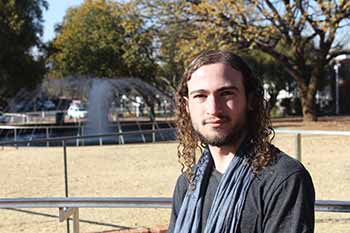Latest News Archive
Please select Category, Year, and then Month to display items
23 September 2020
|
Story Nitha Ramnath
|
Photo Supplied
 UFS students will be performing at the virtual ICDF on 24 September 2020.
UFS students will be performing at the virtual ICDF on 24 September 2020.
On 24 September 2020, South Africa will be celebrating Heritage Day. For the 25th anniversary of this celebration, South Africans are encouraged to celebrate their culture and the diversity of their beliefs and traditions in the wider context of a country that belongs to all its people. Dr Chitja Twala, Vice-Dean: Faculty of the Humanities at the UFS, says: “The importance of the day is that we must celebrate who we are and learn from each other.” The University of the Free
State (UFS) has a long tradition of commemorating Heritage Day and the ideas underpinning it. One way in which the UFS celebrates and recognises the tapestry of diverse cultures represented on its campuses is through its International Cultural Diversity
Festival hosted by the Office for International Affairs. The purpose of the event is to highlight on Heritage Day that international cultural diversity is a central tenet of the UFS community.
Pursuant to the tremendous challenges caused by the COVID-19 pandemic globally, the International Cultural Diversity Festival will this year be celebrated in a virtual format. Even during this uncertain time, it is important to find time to celebrate
our uniqueness and to appreciate one another’s heritage and culture in the spirit of our humanity.
Date: 24 September 2020
Time: 10:00
No registration is required!
For the 2020 Heritage Month celebrations, let us share elements about ourselves that make us proud of who we are! The diverse contributions to the 2020 virtual International Cultural Diversity Festival activities will highlight the university’s commitment towards creating a diverse, challenging intellectual environment. As a research-led university, the UFS strives to provide an environment in which new ideas are incubated and debated, contributing to its transformation process and African unity.
For more information contact Bulelwa Moikwatlhai on MaloB@ufs.ac.za
Young language Einstein set for Europe
2017-07-10

Willem Carel Brink will be studying in France and Italy
for the next two years as part of his master’s
degree programme
Photo: Rulanzen Martin
German, French, English and even Latin are just a few of the languages known by Kovsies’ own language guru, Willem Carel Brink.
This arty junior lecturer and 2015 Senate and Dean’s medal recipient at the Department of Afrikaans and Dutch, German and French at the University of the Free State (UFS) received the Erasmus-Mundus bursary to conduct his master’s degree under the Erasmus Mundus Master en Cultures Littératures Européennes (CLE) title. He departs for Europe in September. “It is a structured interdisciplinary study which focuses on European literature, culture and other aspects,” Willem says. The subject for his thesis will be determined during the duration of the course.
Two-year course under Erasmus Mundus
The Erasmus CLE master’s is a two-year course which is presented by five partner universities in France, Senegal, Italy and Greece. Students are expected to indicate at which universities they want to study but cannot spend both years at the same university. “France was my first choice, because I know the language – which was a prerequisite for selection,” said Willem. He is fluent in Afrikaans, English, German and French!
“I will spend my second year in Bologna, Italy,” he said. It is therefore also expected that he does an Italian course during the first year to prepare him for the second year in Italy.
Future collaboration with UFS a prospect
Future collaborations between him and the language departments at the UFS are possible prospects for the future when he returns. “What makes this degree especially attractive to me is that it has value in terms of the local environment in the teaching of European languages and literature.”